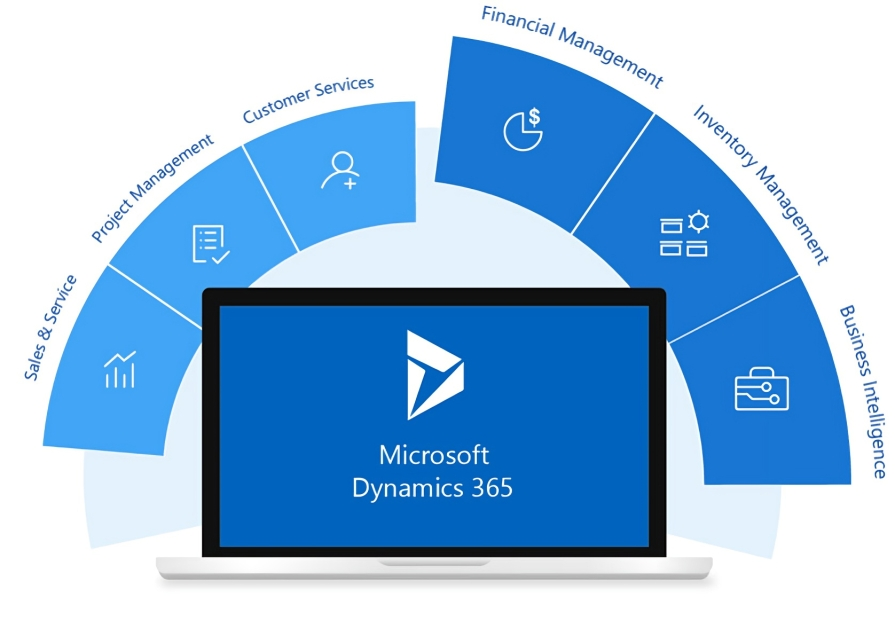Notifications

7 minutes, 10 seconds
-15 Views 0 Comments 0 Likes 0 Reviews

Digital transformation isn't a buzzword anymore—it's a business necessity. For many organizations, Microsoft Dynamics 365 is the go-to platform for streamlining operations, improving customer experiences, and gaining real-time insights. But choosing the right software is only half the battle. The other half? Finding the right Dynamics 365 services partner to bring your vision to life.
A good partner can accelerate your implementation, guide you through complex decisions, and help you avoid costly pitfalls. A bad one can slow you down, burn your budget, and leave you with a system that doesn’t fit your needs. So how do you choose wisely?
This guide walks you through the essential steps to select the right Dynamics 365 partner—one who understands your business, supports your goals, and sticks around long after go-live.
Before you even start searching for a partner, get clear on what you need from Dynamics 365. Are you looking for end-to-end ERP (Enterprise Resource Planning) and CRM (Customer Relationship Management) support? Do you only need help with modules like Finance, Sales, or Supply Chain Management? Are you starting from scratch, or are you migrating from a legacy system?
Your requirements will directly influence the type of partner you need. For example, a small business with limited IT support may need a partner who offers more hands-on guidance, while a large enterprise might prioritize deep industry expertise and scalability.
Don’t just look for a vendor look for a collaborator who understands your business model and can tailor Dynamics 365 to support it.
Dynamics 365 isn’t one-size-fits-all. The way it’s deployed for a manufacturing company will be very different from how it’s set up for a healthcare provider or a financial services firm. That’s why industry-specific experience matters.
Ask potential partners about projects they’ve completed in your sector. What were the outcomes? Did they solve similar challenges to the ones you’re facing? Can they show case studies or references?
A partner who speaks your industry’s language will help you get more value out of Dynamics 365, faster.
Microsoft has a tiered partner program that makes it easier to gauge a company’s credibility. Look for Microsoft Solutions Partners with competencies in Business Applications, particularly those with experience in Dynamics 365 implementations.
Certifications such as Gold Partner status or Advanced Specializations signal a high level of skill and a proven track record. These partners have access to Microsoft’s latest updates, support channels, and technical resources, which means you benefit from the best tools and insights available.
How a partner implements Dynamics 365 can make or break your digital transformation. Ask about their methodology. Do they follow Agile, Waterfall, or a hybrid approach? How do they handle project planning, customization, testing, and training?
More importantly, how do they manage change management and user adoption?
The best Dynamics 365 partners don’t just “install software.” They help your team transition, learn, and adapt to new processes, ensuring the system delivers ROI beyond just the technical implementation.
Dynamics 365 isn’t a “set it and forget it” platform. You’ll need updates, support, and optimization as your business evolves. Make sure your partner offers post-launch services, including technical support, troubleshooting, training, and strategic advice.
Some partners even offer managed services, so your IT team isn’t bogged down with system maintenance and can focus on higher-value tasks.
It’s about building a relationship, not just completing a project.
During your evaluation process, don’t be afraid to ask tough questions:
How many full Dynamics 365 implementations have you completed?
Can you provide client references?
What’s your average project timeline?
How do you handle system customizations and integrations?
What’s your approach to user training and support?
Their answers will reveal not only their technical expertise but also their communication style and commitment to your success.
It’s tempting to choose the cheapest proposal, but that can be a costly mistake. A lower initial price may come with compromises in quality, support, or flexibility. And if you have to fix mistakes down the road, it could end up costing you more in the long run.
Instead, look at the total value a partner brings to the table: strategic guidance, quality of work, responsiveness, and long-term alignment with your goals.
Choosing a Dynamics 365 services partner is one of the most important decisions you’ll make on your digital transformation journey. It’s about more than technology, it’s about finding a trusted advisor who will help you grow, adapt, and stay ahead in a competitive market.
Take your time. Ask the right questions. Look for a partner who’s not just certified but invested in your success. With the right team by your side, Dynamics 365 can become much more than a business platform it can become a catalyst for real, measurable change.
Microsoft Dynamics Partner ERP Software Challenges #ERPSoftware CRM Software Microsoft Dynamics 365

